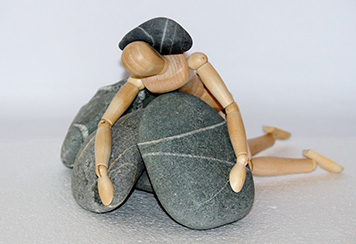Overtraining: Working the same muscles on back-to-back days
It becomes crystal clear why properly warming up and cooling down is essential. As I threw the ball, I first got better and better… then ego took over when I got diminishing returns. I kept going, trying to force myself to get better again. So I did that three days in a row, and then played a game.
I had to put my arms in cold water, and I could barely use my grip strength for the game itself. I inflamed an old case of medial epicondylitis (Golfer’s elbow), and my shoulders were on fire. And if that isn’t enough, then next day after the game was my pull up session for the week. (I eventually discovered that the compression flossing bands provide significantly decreases the pain that comes with overuse injuries.)
Overtraining: Doing two workouts in a day
I am definitely not an advocate of multiple workouts in a day. If you have worked out to true exhaustion, your central nervous system needs as much rest as your muscles and connective tissues. Doing this occasionally might not undermine your progress; however, habitually taking your body to the limit multiple times in a day is a risk factor for chronic inflammation and injury. (Consider using ginger to reduce soreness and improve healing.)
The reason I did two workouts that day was peer pressure. I did an intense upper body workout that morning (after that game I just did), not realizing I would get lassoed into a lower body workout two hours later. I never really got to do the lower body workout to full intensity, because I hadn’t yet eaten after the upper body series. (Hush… it’s obvious in retrospect). So, I went into the lower body session hungry and tired, which increases the risk of using poor form and/or overstraining.
Lesson: Find your limits, test them gradually, grow incrementally, and only then do you level up.
Recent Updates

Glycemic Index vs Glycemic Load
This score indicates how damaging a food will be to your blood sugar levels. Foods that score 0-55 are rated low impact (and thus presumed to be better for diabetics and those looking to maintain healthy weight and/or body fat ratios), but this is not the whole picture.

Caffeine: 14 better options to ease SAD
Nearly a year ago to the dot, I wrote an article about Seasonal Affective Disorder (SAD), but there I focused on the importance of getting access to a full range spectrum of light. Here I’d like to focus on caffeine and sleep’s effect on SAD. I’ll also offer suggestions for what to do to help you feel better on the dark days.

Avoid fish oil supplements
I don’t generally promote supplements. Most of them play to specific, isolated points of medical research to serve as a magic pill. One remarkable example of this is fish oil.
